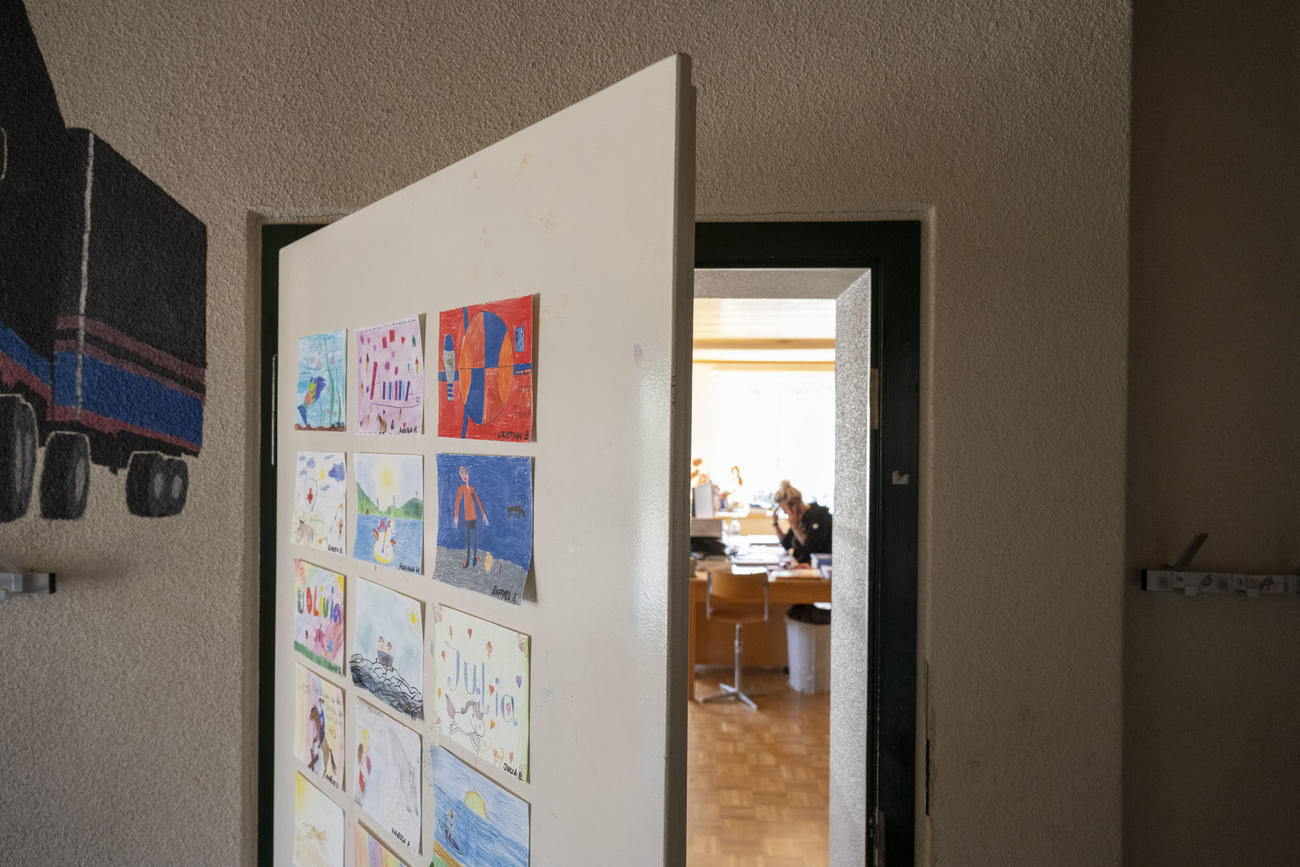
No unified plan for re-opening Swiss schools

Several more cantons confirmed on Friday how their schools will re-open on May 11. While some favour fully opening their doors, others are more cautious.
The re-opening – which was confirmed by the government on Wednesday – applies to compulsory schools (with pupils up to the age of 16). Upper secondary schools are only allowed to open for small groups of pupils. Under Switzerland’s federal system, it’s the cantons that are in charge of educational matters – hence they have the last say in what happens.
+ Swiss government approves further easing of coronavirus restrictions
While cantons such as Appenzell Outer Rhodes and Nidwalden have opted for “almost back to normal” from May 11 – allowing pupils to follow the regular school timetable unless they are in risk groups. Fribourg decided for a step-by-step approach, so classes will be divided into two and held on alternate days until May 20.
National requirements
All the cantons emphasized that they would keep to the national requirements drawn up by the Federal Office of Public HealthExternal link – also issued on Wednesday – to protect the health of pupils and teachers.
These include washing hands, more cleaning and airing of rooms, two metres social distancing between teachers and pupils, but no social distancing for pupils under ten (deemed too unrealistic) and no obligation to wear masks.
Most of the 26 cantons have now explained how they will approach schools restarting. Zug will let parents know on May 5, just six days before the re-opening date.
Wide-ranging
What is already clear is that there will be a wide range of approachesExternal link. The large German-speaking cantons of Zurich and St Gallen have gone for dividing classes into two for a month. Most other German-speaking cantons are diving back into full teaching programmes (Bern will do two days of half classes first to practice hygiene and distancing measures in small groups).
Even Italian-speaking Ticino, which has been one of the worst affected by the coronavirus outbreak, is allowing normal resumption of school from May 11 under strict precautions. Schools are allowed to push back the start date by a week though.
Cultural difference?
In the French-speaking part of Switzerland, it’s a little different. “The cantons of Geneva and Vaud have been very impacted by the coronavirus. There has been a request to restart school more progressively. We are being more cautious health-wise than other cantons,” said Cesla Amarelle, head of education in canton Vaud, on Swiss public television RTS on ThursdayExternal link.
Vaud, for example, has opted for half classes on alternate days (one on Monday, another Tuesday etc) until May 25. School childcare options are in place for working parents. Geneva has gone for a part-time school approach, meaning either morning or afternoon teaching until May 25 for primary schools.
Teacher reactions
The association of head teachers in Switzerland has already criticised the lack of a common solution among the cantons, as has the French-speaking teachers’ union SER. It saidExternal link teaching over the next weeks would be highly impacted by the health office’s measures and added that schools could only resume if everything was applied effectively.
For its part, the German-speaking Federation of Swiss Teachers, while welcoming the return to face-to-face teaching, also regretted that national measures did not go far enough. “This protection concept will prompt many questions among parents when they see that schools are being re-opened differently depending on the canton, village or town or school house,” LCH president Dagmar Rösler told the Tages-AnzeigerExternal link.
Children and virus
Top health official Daniel Koch again on Friday reiterated the government’s stance that it wasn’t problematic to re-open schools because children did not play a big role in transmitting the virus. “There will not be an epidemic among pupils,” Koch told reporters at a press conference.
The National COVID-19 Science Task Force also published a policy briefExternal link on the same day in which it stated that the role of children and adolescents in the transmission of SarsCov2 remained “highly uncertain”.

In compliance with the JTI standards
More: SWI swissinfo.ch certified by the Journalism Trust Initiative































You can find an overview of ongoing debates with our journalists here . Please join us!
If you want to start a conversation about a topic raised in this article or want to report factual errors, email us at english@swissinfo.ch.